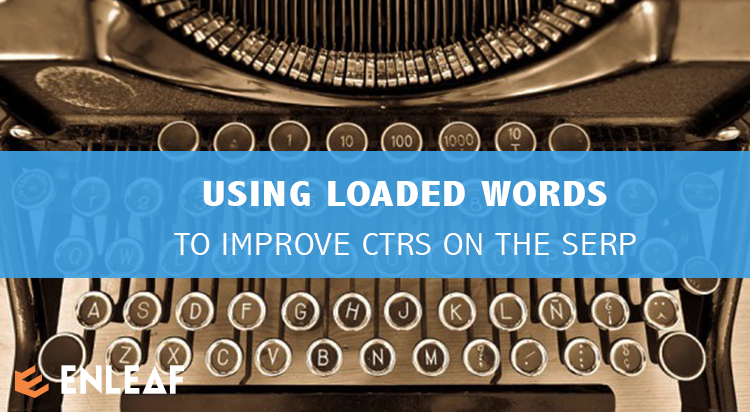
SEO is half the battle
So you have your #1 rank, that shiny “top spot” on the SERP, and you know Google is going to send you lots of “free” traffic. But you’re not getting as much traffic as you think you should be getting. Or you’re looking for more, a little extra “juice” for your online business.
Long, sleepless nights
You know there’s more you could be doing to get traffic, tactics that are just beyond your knowing. If only you had a little more experience, you’d know more tricks. Maybe you’re even spending serious money on PPC or display ads. But the best things in life are free, and you know that, and you’re looking for that extra push, the kind of push that comes with knowing what you’re doing from experience.
Making my experience work for you
Your title tags and meta descriptions are more than what they appear to be. Click-thru-rates can vary wildly, anywhere from 18 to 35%, even if you own the top spot on the SERP. Why would someone ever click the #2 result over your sterling #1 result? It happens all the time because savvy web users (nearly all of them at this point) don’t care about your #1 result. Many of them don’t care where you are on the SERP as long as you’re on the front page.
It’s all about relevance
Speaking from experience, I’m looking for relevancy, and I’m savvy enough to know that the #1 result isn’t always relevant to what I’m looking for. So I look at the titles and the snippets Google produces in order to figure out if it’s worth the click. If your title and meta-descriptions (what the snippets are made of) look relevant, I’ll click your link over the rest of the page, regardless of where you are on the page.
Tease your prospects with your titles and snippets
Your prospects aren’t going to click if you tell them everything they need to know when they first meet you on the SERP. Why would they? You’ve given them everything they need to know, and there’s no reason for them to look further into what you’re offering. Earning a front-page spot on a SERP means you’re getting “free” ad space.
Use it well!
Your space on the SERP is a “free” text ad
Your options are limited, obviously. You get to say whatever you want using ~69 characters in the title and ~160 characters in the snippet. Some search engines pull your snippet from the meta-description, some pull your snippet from the page. Either way, you want to make sure you’re teasing your prospects with your titles and the snippets that accompany them. The more you tease and the less you say, the more traffic you’ll win from the SERP.
How to tease
Oh boy. Tease is a loaded word, so let’s get our minds out of the gutter for a second. But feel free to keep at least one foot in the gutter when you’re writing ad copy. The trick is to brush against what your prospect wants, using words. Assume from the word go that you have what they want. But what they want is on your page, not on the SERP. You don’t want them to stop at the SERP, and you sure as heck don’t want them to click on your competitors’ links. Use your titles and your meta-description (the thing from which the snippet is pulled, remember?) to gently seduce your prospect. Take them only so far.
Make sure they click the link to go “all the way.”
Using loaded words
I can’t tell you what words to use without knowing exactly what you’re selling. But there are certain words you can use, depending on what you’re selling, to hit your prospect’s emotional “buy buttons” and get them further into your selling process. Some of these words and phrases are universal, like “FREE” and “everyone knows” and “little known” and “proven.” Ever heard the phrase “if it’s free, it’s for me”? And how would you like to go on with your life not knowing something everyone else on earth knows? And, on the flip side, how would you like to know things hardly anyone else knows? And, of course, everyone wants to get something that works, hence the power of something that’s “proven.”
Be descriptive AND hit your prospects’ buttons
Of course your title tags and meta-descriptions need to be descriptive, but that’s no excuse not to hit your prospects’ emotional buy-buttons on the SERP. Your place on the SERP is basically a text ad, remember? By thinking of the text you present to searchers more like an ad and less like a listing, you can boost click-thru-rates, drive more traffic, and ultimately make more money.
Adam Chronister is co-founder of Enleaf, an award winning Web Design and Internet Marketing Firm. You can find him on Facebook Facebook and Twitter.
